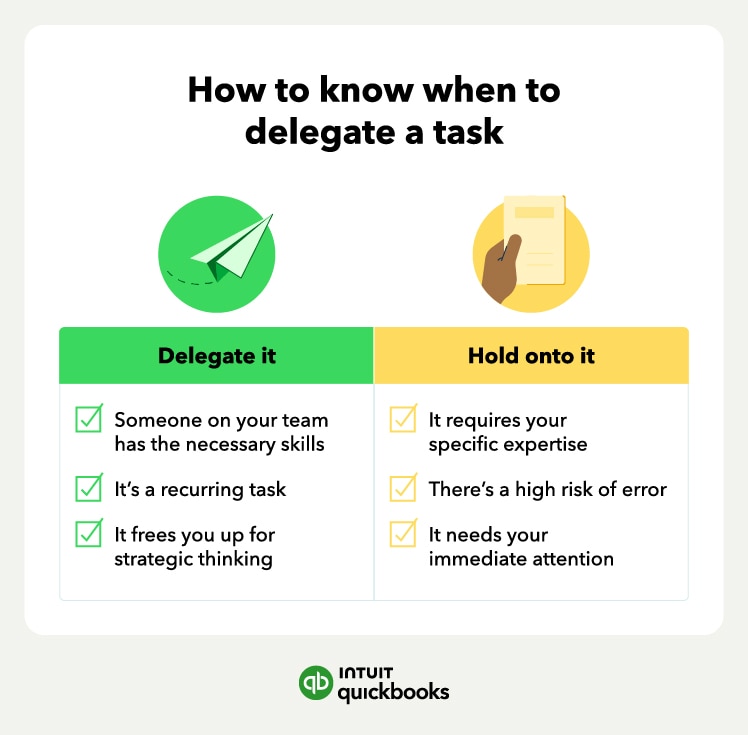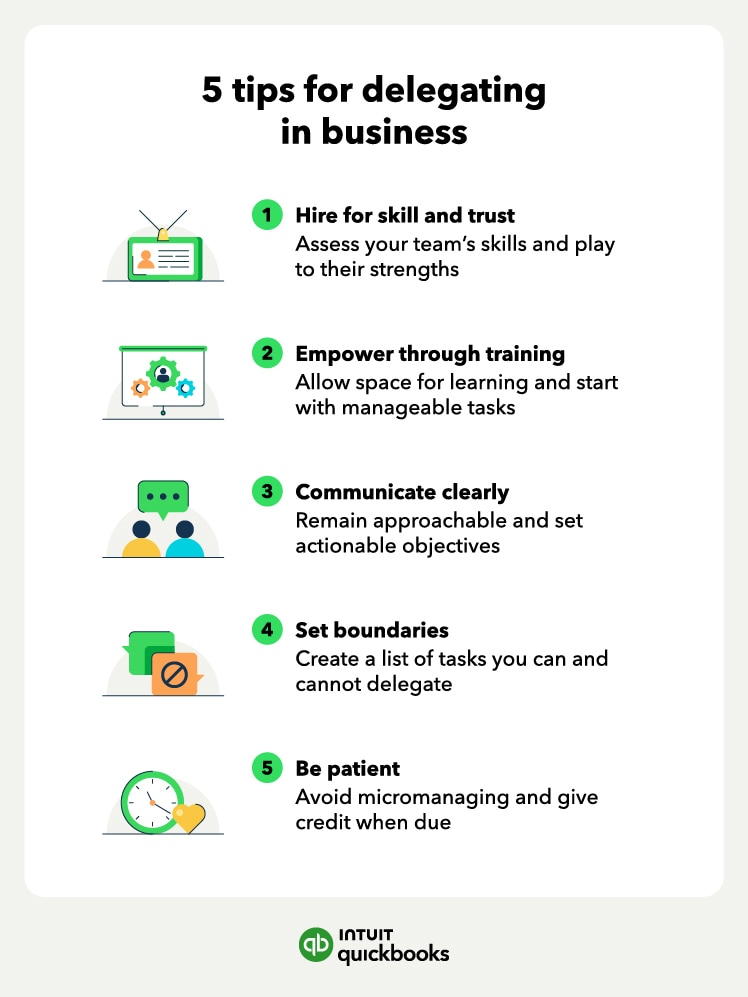2. Allow for learning and training
Delegation can be difficult if you’re a perfectionist or believe that no one can do the job as well as you can. However, you can improve your delegation skills by building more trust with your team and providing clear steps and instructions.
When delegating a new task to an employee, follow this four-step process for effective delegation:
- They watch you. Do the task you intend to delegate while your employee watches. Encourage them to take notes and ask questions. Then, debrief with your employee afterward.
- You watch them. Once they feel confident, switch roles. Watch as your employee does the task. Offer prompts or feedback when necessary.
- They report back. Once you both feel confident in the employee’s ability to accomplish the task without your supervision, step back. Allow them to do the task on their own and report back to you.
- They do it. Congratulations! You’ve effectively delegated. Your employee can accomplish the task, and you can feel confident in their abilities. It’s still OK to check in from time to time to offer support.
Also, provide all the resources and direction your team member needs to complete the task successfully. This might include productivity training, access to information, or introductions to key contacts. Your delegating skills will improve as you take a step back.
3. Communicate effectively
Communicate objectives and expectations from the start. Your team should know exactly what you expect from them and how you want the results. If there are particular details you want to know, outline those ahead of time. If needed, create checklists or reports for each task to ensure you get the information you need.
Your employees shouldn’t feel like you’re watching over their shoulders or controlling their decisions. However, they should know that they can always approach you with ideas, questions, or concerns.
4. Set delegation boundaries
Not all tasks are created equal. Some tasks make more sense to delegate than others. Set clear delegation boundaries so you always know which tasks to take on and pass off.
Start by evaluating the tasks you currently have on your plate. For each task, ask yourself if someone else on your team could handle it or if there’s a benefit to doing it yourself. You’ll start to see a pattern. Certain tasks are easy to delegate, while others require your attention.















 Create a simple matrix with urgency and importance on the axes. Urgent and important tasks might require your attention, while tasks that are low urgency and low importance could be delegated.
Create a simple matrix with urgency and importance on the axes. Urgent and important tasks might require your attention, while tasks that are low urgency and low importance could be delegated.




